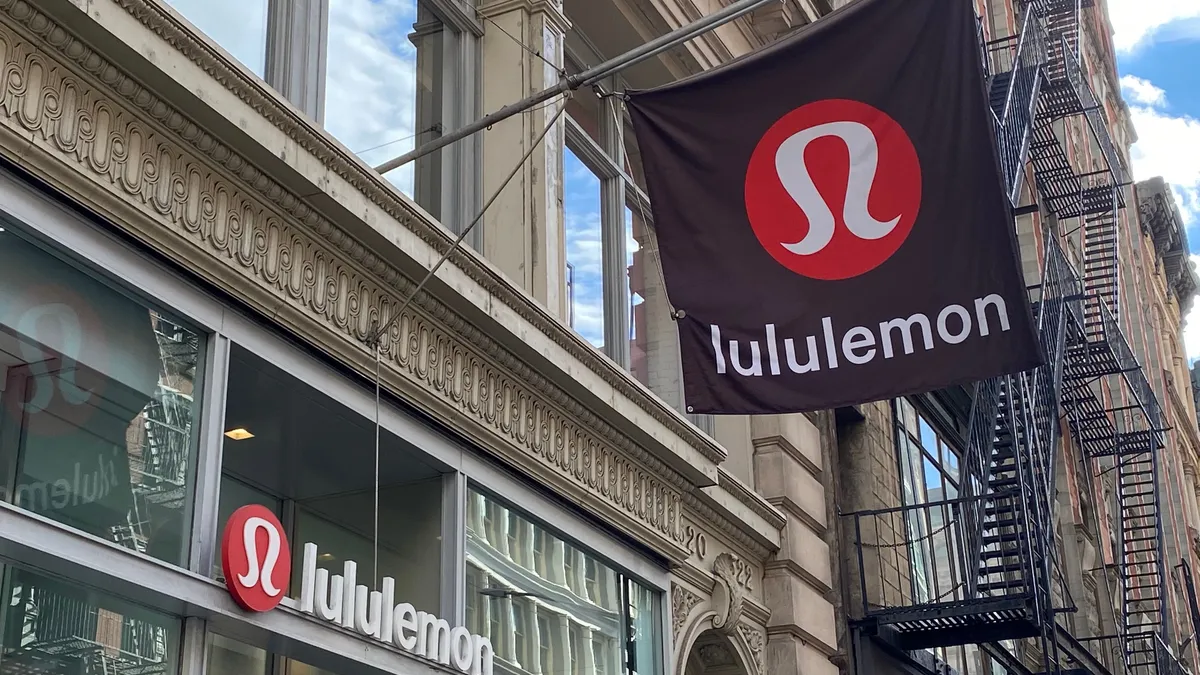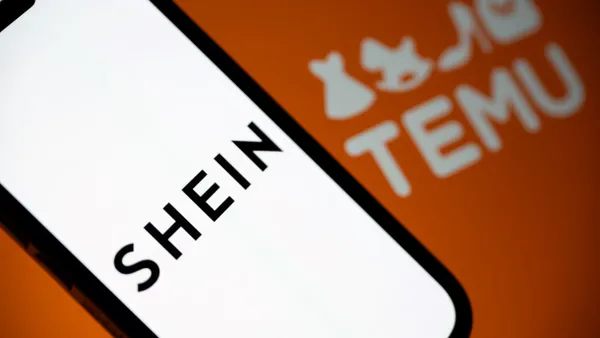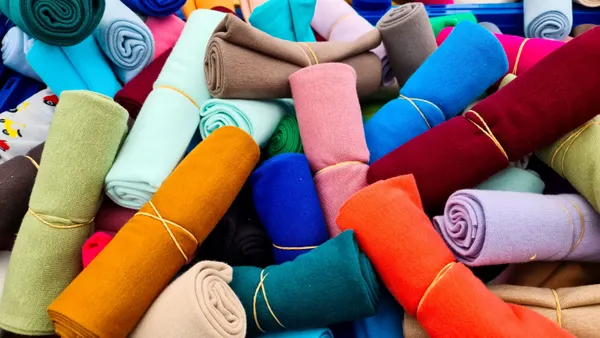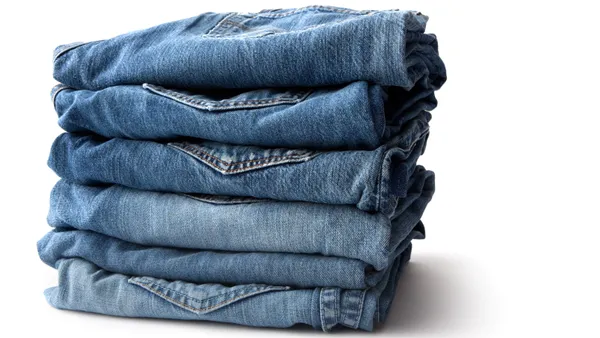Dive Brief:
- Advancing toward its goal of more sustainably produced garments, Lululemon has teamed up with Samsara Eco, an Australian environmental technology company, to introduce the first enzymatically recycled nylon 6,6 product, according to a press release on Tuesday.
- Using recycled nylon 6,6, Lululemon has created samples of its Swiftly Tech Long-Sleeve Top — the first time this type of nylon has been recycled in this way, according to the athleticwear brand. The samples are a “key milestone” that brings fashion closer to creating a circular ecosystem, according to Samsara Eco.
- Lululemon currently uses nylon 6,6 for many of its products, including its Align and Wunder Train leggings. The Swiftly samples take Lululemon nylon apparel at the end-of-life stage — including leggings — and combine it with other non-textile materials to create recycled nylon for use in new Lululemon products.
Dive Insight:
Lululemon entered a multiyear agreement last year with Samsara Eco to scale circular efforts through textile-to-textile recycling. The partnership is part of Lululemon's 2030 goal of making all of its products with "preferred materials and end of use solutions," the company said.
When the two announced their collaboration, Lululemon said that it had invested an undisclosed amount into Samsara. Now, the two companies have launched patent-pending tech that makes it possible to extract nylon 6,6 from end-of-life stage textiles.
Nylon 6,6 is a commonly used plastic in the textile industry and “has been notoriously difficult to recycle” due to its properties, according to Samsara Eco.
"The Lululemon Swiftly top samples go beyond material innovation — they represent the exciting possibilities and impact that can be achieved through collaboration and cross-industry partnership," Yogendra Dandapure, vice president of raw materials innovation at Lululemon, said in a statement. "This breakthrough not only signals a turning point for sustainable innovation in apparel, but for all industries looking to shift towards more circular models.”
The activewear brand is experimenting with alternative materials in other ways as well, releasing its first products made with plant-based nylon in April last year. Meanwhile, other activewear brands have been introducing eco-friendly fabrics and using them more in their manufacturing process. Last August, Vuori unveiled its BlissBlend fabric, which is made of 75% recycled materials and is used in the brand's AllTheFeels leggings and bras. Nike in 2022 rolled out a new fabric made of 70% recycled content by weight, which has a 75% lower carbon footprint than standard knit fleece. Swiss athletics brand On said it grew its use of recycled polyester in products to 85% in 2022, progressing toward its goal of making all of its products from recycled polyester and polyamide this year.
Though Lululemon has a series of sustainability goals it’s working toward, it has recently faced accusations of greenwashing. Stand.earth, an environmental advocacy group, recently filed a complaint with the Competition Bureau Canada, urging the agency to investigate the conduct of Lululemon. In the complaint, the organization alleged that Lululemon's greenhouse gas emissions doubled following its 2020 "Be Planet" marketing campaign. The company did not directly address accusations of its marketing campaign, but a Lululemon spokesperson said in an email to Fashion Dive that the company recognizes that the majority of impact comes from emissions from the broader supply chain.












